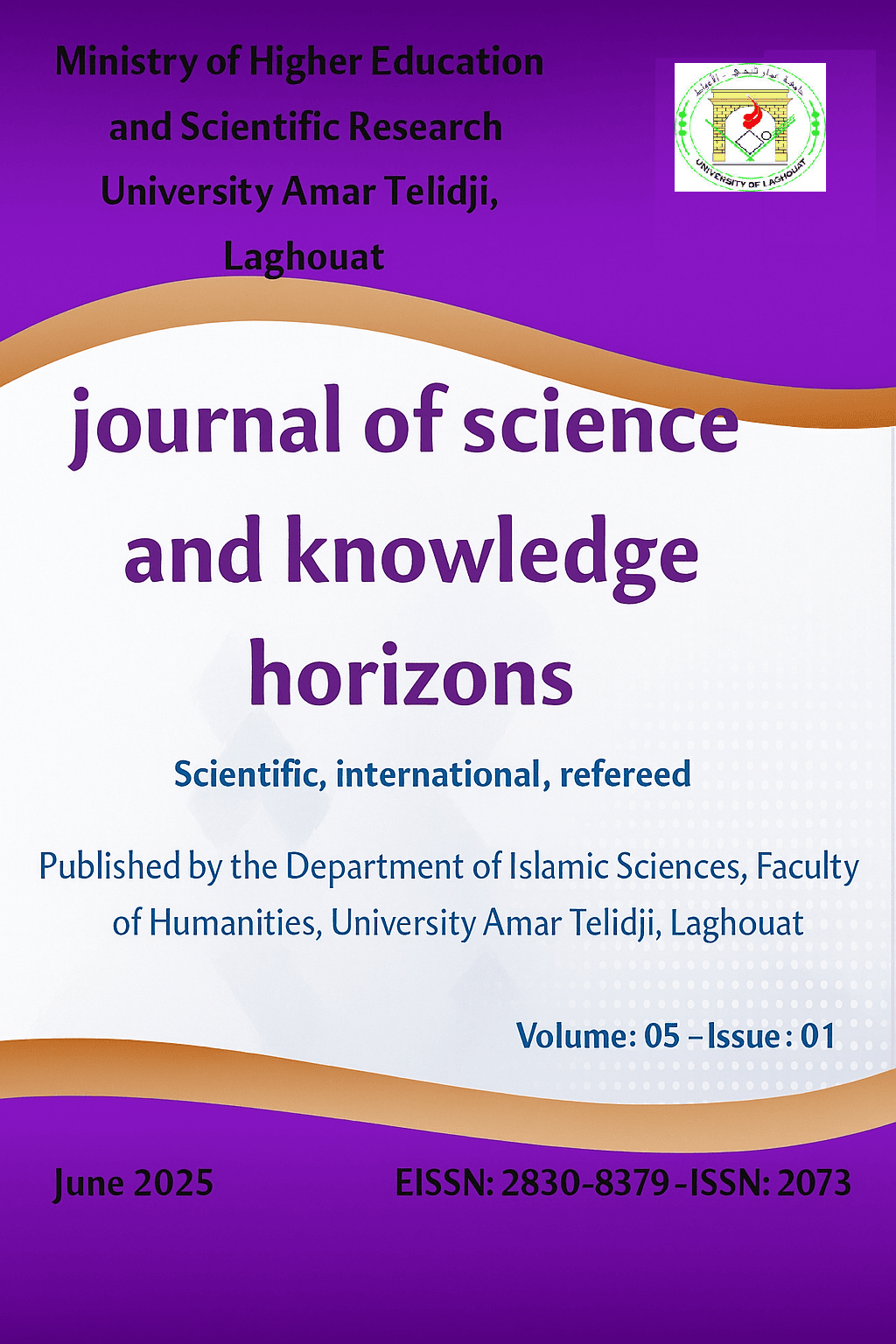International legal regulation of artificial intelligence
Abstract
This study aims to know the international legal regulation of artificial intelligence as one of the outcomes of the Fourth Industrial Revolution, and as it affects all fields, especially technical and technological ones. This requires that technicians be informed of the legal aspects of artificial intelligence in order to avoid the negatives that may result from its uses, and to benefit from its positives and advantages. The study concluded that most international and national legislation related to artificial intelligence only addressed its characteristics and role in the contractual field, forgetting the most important aspect, which is the legal regulation of the technical aspect of artificial intelligence. As a double-edged sword, despite its increasing role in most areas of our daily lives, developing it in an irresponsible manner may place the fate of humanity in the hands of a force that does not see things from a human point of view.
Downloads
References
Abdullah, M. A. H. B. (2019). Artificial intelligence: A revolution in modern technologies. Egyptian Book House.
Amir, F. (2023). Civil and criminal liability provisions for the operation of artificially intelligent robots for the damages they cause. University Press.
Andersen, L. (2018). Human rights in the age of artificial intelligence. [Publisher unknown].
Basyouni, M. A.-K. (2024). Islam's view of modern artificial intelligence within the framework of technical development thought. [Self-published].
Belbey, I. (2024). Artificial intelligence in international law: A study of concept, frameworks, and applications. Legal Book Foundation for Publishing and Distribution & Ibn al-Nadim Publishing and Distribution House.
FDFA. (2022). Artificial intelligence and international regulation. Federal Department of Foreign Affairs (FDFA).
International Electrotechnical Commission (IEC). (2018). Artificial intelligence across industries. IEC.
International Standards Organization. (2023). ISO/IEC 42001:2023 Information technology — Artificial intelligence — Management system. International Standards.
International Telecommunication Union. (2021). Emerging technology trends: Artificial intelligence and big data for development. International Telecommunication Union.
Mahdi, H. (2021). Artificial intelligence and imperialist conflict. Now Publishers and Distributors.
Articles
El-Sayed, A. R. (2023). The impact of artificial intelligence on values and human rights: The right to protect personal data. Benha Journal of Humanities.
El-Sayed, H. F. (2023). The social and economic implications of the use of artificial intelligence technologies and their impact on human rights in the Arab world: A foresight perspective. Journal of Human and Social Sciences, March.
Dahshan, Y. I. (2022). Artificial intelligence crimes and mechanisms to combat them. Spirit of Laws Magazine, October.
Siddiq, M., & Abdullah, M. (2021). The legislative framework for artificial intelligence applications: A comparative study. Middle East Journal of Legal and Jurisprudential Studies.
Al-Bayoumi, R. I. A. (2023). Legal protection from the risks of artificial intelligence – A comparative analytical study. Legal Journal, November.
Filgueiras, F. (2022). Running for artificial intelligence policy in G20 countries – Policy instruments and mixes matters? Revista Brasileira de Inovação.
Reports
United Nations. (1975). Declaration on the use of scientific and technological progress in the interests of peace and for the benefit of mankind (A/RES/3384 (XXX)).
UNESCO. (2021). UNESCO recommendation on the ethics of artificial intelligence (SHS/BIO/REC-AIETHICS/2021).
OECD. (2021). OECD Council recommendation on artificial intelligence (OECD/LEGAL/0449).
Websites
Center for AI and Digital Policy. (2024). Council of Europe AI treaty. https://www.caidp.org/resources/coe-ai-treaty/
Council of Europe. (2023, March). The Council of Europe and artificial intelligence. https://rm.coe.int/brochure-artificial-intelligence-fr-march-2023-print/1680aab8e7
Darling, C., Tobey, D., Borden, B., & Ashle. (2024). G7 publishes guiding principles and code of conduct for artificial intelligence. DLA Piper. https://www.dlapiper.com
Rozen, C., & Deutsch, J. (2023, November 12). Regulate AI? How US, EU and China are going about it. Bloomberg. https://www.bloomberg.com/news/articles/2023-10-30/ai-regulation-what-biden-s-new-rules-might-mean-in-the-us
Vannucci, F., & Connolly, C. (2024). What is the AI law and the Council of Europe Convention? Stop Killer Robots. https://www.stopkillerrobots.org/ar/News/What-is-the-artificial-intelligence-law-and-the-Council-of-Europe-agreement/
Institute of Electrical and Electronics Engineers (IEEE). (2024). About IEEE. https://www.ieee.org/about/at-a-glance.html
International Electrotechnical Commission (IEC). (2024). Who we are. https://www.iec.ch/who-we-are
Goldstein, M. S., Manfredi, A., & Elkreif, J. (2023, October 30). How artificial intelligence is impacting the U.S. workplace (Part I). Employment Law Watch. https://www.employmentlawwatch.com/2023/10/articles/employment-us/how-artificial-i
The White House. (2023, October 30). Fact sheet: President Biden issues executive order on safe, secure, and trustworthy artificial intelligence. https://www.whitehouse.gov/briefing-room/statements-releases/2023/10/30/fact-sheet-p

This work is licensed under a Creative Commons Attribution-NonCommercial 4.0 International License.






